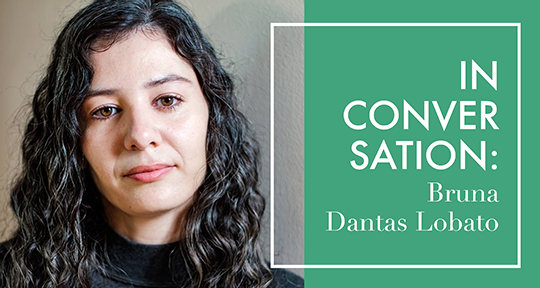In 2023, Bruna Dantas Lobato won a PEN Translates grant for her work on Jeferson Tenório’s The Dark Side of Skin, a moving, feeling novel of how relationships—between parent and child, between lovers, between a body and a city—change, develop, and intwine against powerful institutions and worldly violences. Through the story of Pedro—which is in turn told through the life of his murdered father—Tenório vividly inscribes the urbanity of Porto Alegre and the generations that move through it, along with the cruelty, the mystery, and the love. In this interview, Lobato speaks on the novel’s treatment of racism, its refractions of Baldwin, and how its author draws on Brazil’s rich aesthetic canon.
Xiao Yue Shan (XYS): You’ve spoken before about how passionate you are about translating titles from the northeast of Brazil, but The Dark Side of Skin takes place in in southern Brazil—Porto Alegre—and Tenório has spoken about how the racism it describes is one that is expressed more pointedly in regards to the city’s relatively homogenous population. Could you speak a little bit about how geography or regionality works in this novel, and also about what drew you to translate it?
Bruna Dantas Lobato (BDL): The Northeast of Brazil, where I grew up, is very underrepresented in literature both in Brazil and abroad. There are very few authors from that region available in translation, especially compared to the whiter metropoles. I’d love to see a greater range of stories from different parts of Brazil in English, so we don’t keep reading the same versions of Latin America over and over again.
I was drawn to Tenório’s novel for similar reasons, for how it presents the experience of a Black man in a predominantly white city with insight and tenderness. It’s a beautiful and painful book, and to have Tenório join the slate of Porto Alegre authors widely available in English with a different kind of book was important to me. I hope the publishers who often tell me that they already have their one Brazilian author—or one author from a certain region—will see that one voice can’t possibly represent a whole country.
XYS: A significant portion of the novel is written in the second person, which is a literary point-of-view that I think is especially sensitive to each individual language and the culture it stems from (e.g. in terms of interpersonal hierarchies, categories of persons, speech-acts). How was it working with the second person here?

